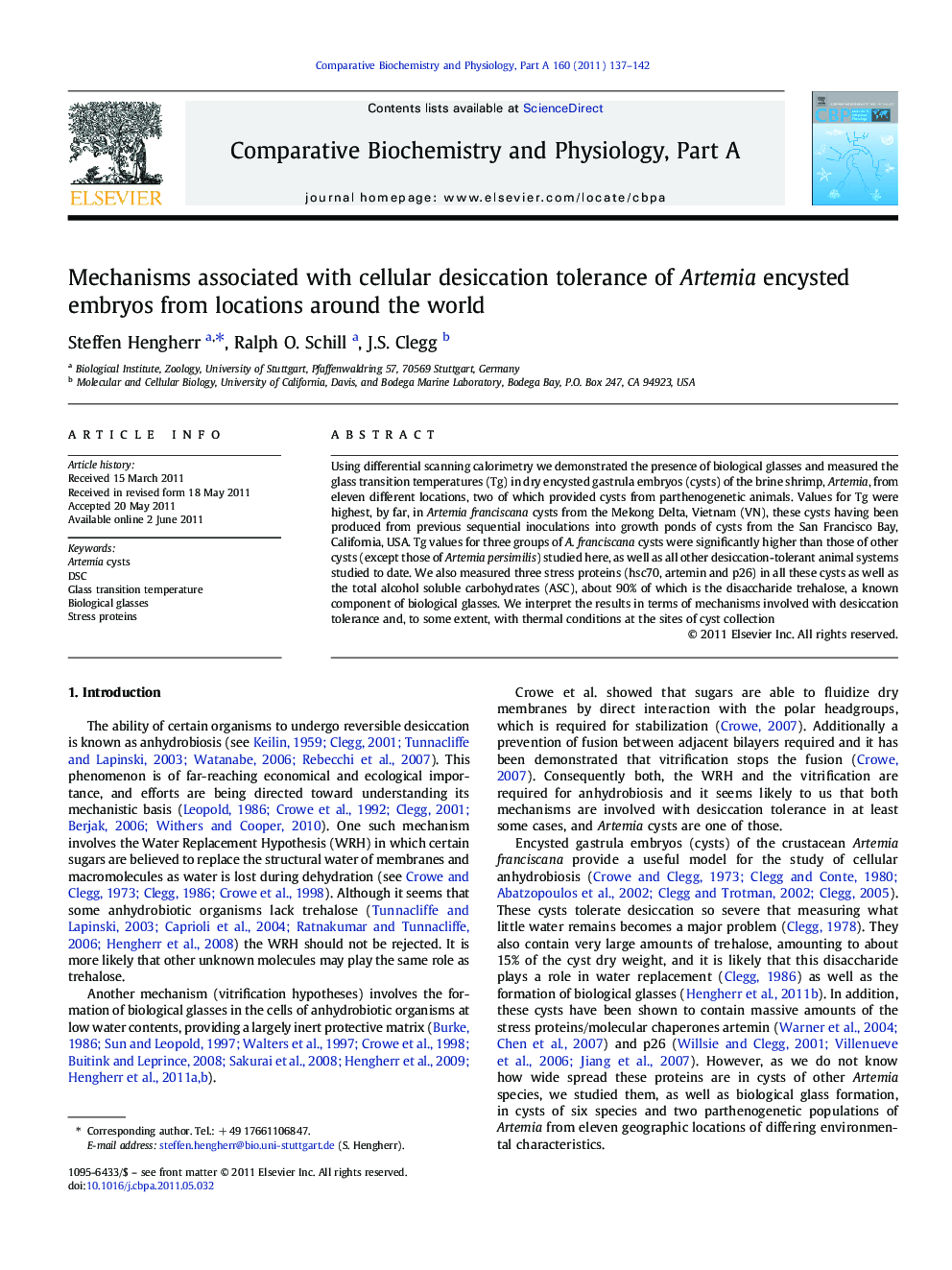| Article ID | Journal | Published Year | Pages | File Type |
|---|---|---|---|---|
| 10818985 | Comparative Biochemistry and Physiology Part A: Molecular & Integrative Physiology | 2011 | 6 Pages |
Abstract
Using differential scanning calorimetry we demonstrated the presence of biological glasses and measured the glass transition temperatures (Tg) in dry encysted gastrula embryos (cysts) of the brine shrimp, Artemia, from eleven different locations, two of which provided cysts from parthenogenetic animals. Values for Tg were highest, by far, in Artemia franciscana cysts from the Mekong Delta, Vietnam (VN), these cysts having been produced from previous sequential inoculations into growth ponds of cysts from the San Francisco Bay, California, USA. Tg values for three groups of A. franciscana cysts were significantly higher than those of other cysts (except those of Artemia persimilis) studied here, as well as all other desiccation-tolerant animal systems studied to date. We also measured three stress proteins (hsc70, artemin and p26) in all these cysts as well as the total alcohol soluble carbohydrates (ASC), about 90% of which is the disaccharide trehalose, a known component of biological glasses. We interpret the results in terms of mechanisms involved with desiccation tolerance and, to some extent, with thermal conditions at the sites of cyst collection
Related Topics
Life Sciences
Biochemistry, Genetics and Molecular Biology
Biochemistry
Authors
Steffen Hengherr, Ralph O. Schill, J.S. Clegg,
